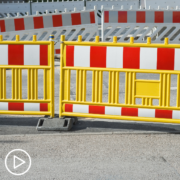What Are Barriers to Endometrial Cancer Care Access?
What Are Barriers to Endometrial Cancer Care Access? from Patient Empowerment Network on Vimeo.
How can endometrial cancer care access be obstructed by barriers? Expert Dr. Charlotte Gamble from MedStar Health discusses common barriers to care and patient advice to overcome some barriers.
[ACT]IVATION TIP
“…rely on the support that you have in your own lives to make sure that all the barriers that are in your control you can properly address and sometimes that takes a village and to really make sure that you have an advocate either a family friend, or a family member who could help get you and navigate you through this cumbersome process.”
Download Guide | Descargar Guía en Español
See More from [ACT]IVATED Endometrial Cancer
Related Resources:

Advancements in Endometrial Cancer Trials | Insights and Opportunities |

|

|
Transcript:
Lisa Hatfield:
Dr. Gamble, can you speak to barriers to accessing care in endometrial cancer?
Dr. Charlotte Gamble:
Absolutely. What I’ve seen from some of my research, both with myself as well as with Kemi Doll, when we talk to patients and speak to them about what are the issues they face into getting timely gynecologic oncology care, it’s a myriad of factors. So there are some barriers at different levels. So patients themselves face barriers in their own lives where they might not understand the symptoms of endometrial cancer, which oftentimes are a postmenopausal bleeding, or sometimes bloating, or pelvic fullness, and sometimes are really busy doing other things in their lives that they can’t prioritize their own health and kind of ignore some of the symptoms.
And so knowledge gaps are a barrier. And the logistics sometimes of making it to a doctor’s office or their provider’s office can oftentimes be challenges that patients might face in their own lives. However, a lot of my concern also comes to the provider level barriers where sometimes when patients are legitimately concerned, rightfully so, with symptoms they might be having, oftentimes the health system might ignore their symptoms.
And so they might run into barriers when they actually try to call and schedule an appointment with their gynecologist or with their primary care doctor discussing symptoms, and they might be told that this doctor doesn’t have availability for the next three to four months, come and see us in August, which presents a whole set of delays that the patients face. And this might be somebody that’s an administrator for the office, the front desk staff that just might not have the insight to be able to escalate that concern upwards.
Additionally, what we see is that sometimes when patients come to their providers with these concerns, the providers themselves might not have the knowledge area or the level of concern to meet that need that patients have. And so sometimes can misdiagnose patients or not get a timely workup in place. And that’s something that the health community I think, needs to work on as well. And lastly, the health system is messy. We have a messy health system in the United States and lots of fragmentation and care.
And so the process, even when somebody appropriately raises a concern to their primary provider, gets the appropriate workup, gets a diagnosis, sometimes it’s actually very difficult for them to get that referral and make it to the oncologist or the subspecialist’s office in a timely fashion. And some of that, you know, some of my research right now goes into how can the health system be better about coordinating and helping patients navigate what is a very burdensome and cumbersome health system. So barriers are at several levels. They’re at the patient level, they’re at the organizational level, they’re at the health system level. Ranging all the way from, I didn’t know that this could be a problem, this symptom I’m experiencing, to, I don’t have the correct type of health insurance to be able to cover the subspecialty care that I now need.
Share Your Feedback:
Create your own user feedback survey









